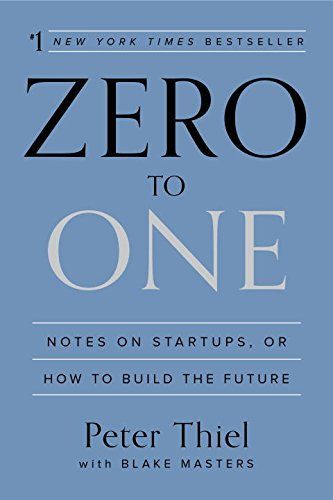
Zero to One Notes on Startups, Or how to Build the Future
The billionaire Silicon Valley entrepreneur behind such companies as PayPal and Facebook outlines an innovative theory and formula for building the companies of the future by creating and monopolizing new markets instead of competing in old ones. 200,000 first printing.
Reviews
Cassandra Tang@tangaroo
Andrew Kim@andrewkim
Reiza H@rererei93
Lewis Ngugi@ngeshlew
matej yangwao@yangwao
Rohit Arondekar@rohitarondekar
Gavin@gl
Keven Wang@kevenwang
Madhuri jain@madhuri_jain
Obada Mu@obada
Nick Gracilla@ngracilla
Arturo Hernández@artthh
Sierra Nguyen@sierra-reads
Neil Murray@neilswmurray
Ahmed Salem@salem309
Todd Luallen@tluallen
alali moe@xmoe
brendan sudol@bren
Ethan Ding@ethanding
Ugis@vilcans
jack morris@jxm
Chris Raastad@craastad
Vedat Güven@veduto
Donald@riversofeurope
Highlights
Cassandra Tang@tangaroo
Cassandra Tang@tangaroo
Cassandra Tang@tangaroo
Cassandra Tang@tangaroo
Cassandra Tang@tangaroo
Cassandra Tang@tangaroo
Cassandra Tang@tangaroo
Cassandra Tang@tangaroo
Cassandra Tang@tangaroo
Nkwachi Nwamaghinna@nkwachi